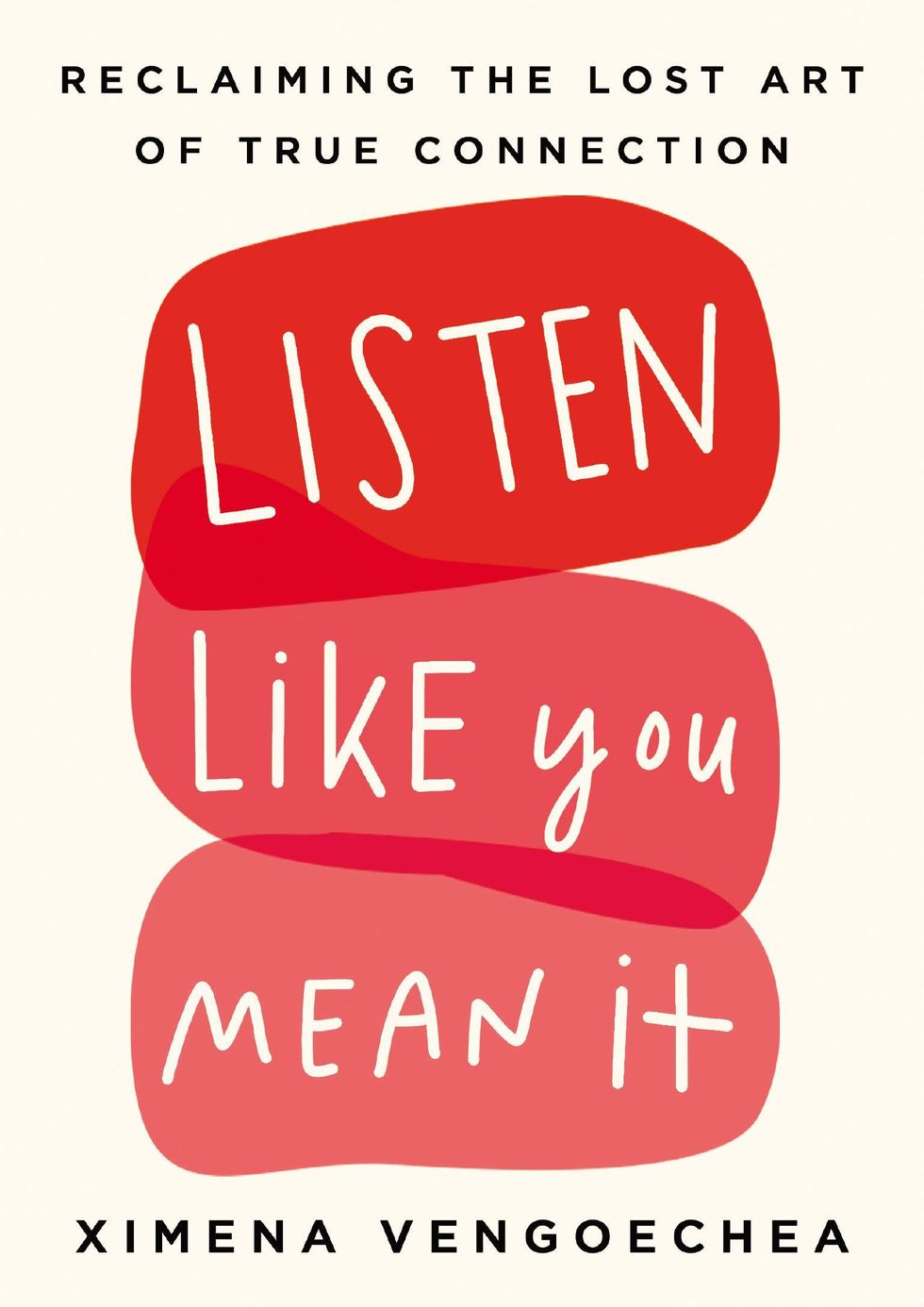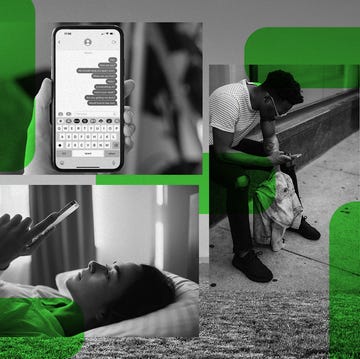“Mom, you’ve asked me three questions in less than two minutes,” my son said as I opened my mouth to follow up on a question I hadn’t yet given him a chance to answer. I wasn’t trying to annoy him with rapid-fire queries. Instead, I blame my need to gather information quickly on my curiosity and impatience. By the time I’ve uttered the last syllable, my mind is racing to ask something else.
A study published in the Harvard Business Review found that asking questions and listening was more effective than offering feedback. My approach was right, but my follow-through needed work. Attempting to deepen, rather than damage, my close relationships, I reached out to experts for insight. Aside from the obvious tips (put your phone away, make eye contact, and focus on the person speaking), I wanted to learn how to maximize my listening skills. The bottom line: Listening isn’t as easy as it sounds.
“We are basically wired so that we can think a lot faster than we can talk,” says psychiatrist Dr. Kathryn Ford. “You might be trying to listen, but the speaker is speaking at the rate you could speak, and your brain is racing ahead with multiple connections.” When discussing important subjects with people you care about, Ford advises deploying mindfulness: Slow down, and pay attention to what’s happening.
Nixaly Leonardo, a cognitive behavioral therapist, licensed clinical social worker, and author of Active Listening Techniques, offers another take. She says that physical noise, which may involve sounds in the environment or background noise, can affect listening. Also, there could be physiological noise, such as not feeling well or having a conflict at work. “Anything you can’t shake from your mind could detract you from being present,” she says. “Those physiological factors can get in the way of your ability to listen.”
After my son commented on my multiple questions, I remembered one of my New Year’s resolutions: Let someone finish a thought before I jump into the conversation. There’s a logical explanation for why I’ve slipped a few times.
“You might be passionate about a topic and therefore interrupt the other person because you just can’t hold it in,” says Ximena Vengoechea, a user researcher and author of Listen Like You Mean It. But she tells me that when we interrupt someone, we miss the chance to understand the other person. While they may appreciate your enthusiasm, they could be gearing up to ask you for help. “Interrupting can immediately change the course of a conversation and, frankly, shut it down,” Vengoechea adds.
On the other hand, Ford believes that interrupting isn’t always a bad idea. “If you’re at a point that you’re checking out, and if you notice you’re losing your ability to listen, it’s important to interrupt because that’s no longer a conversation, and they don’t know that.” She suggests saying, “Hold on a second. I need a minute.” Or “You’re saying a lot; I need a minute to process this.” The person speaking wants to be heard and may even want a response. Conversations are, after all, give-and-take.
Jotting down what you’re talking about during a casual conversation with friends or coworkers could feel strange. But when you need to address issues or conflicts with someone, consider taking notes during the conversation, suggests Leonardo. This strategy is especially helpful when broaching a touchy subject with your partner. You can tell them you’re taking notes because you don’t want to forget anything or interrupt them: “I want to listen to you.” You don’t need to feel ashamed about it. “That’s you being a full, active listener,” she says, “and fully present.”
Being a good listener means not only understanding a person’s words but also recognizing when they want feedback and when they just want to vent. My husband’s and my advice-giving tendencies meant our intentions to help each other were good but not always welcome. One day, we agreed to stop dishing out unsolicited advice to each other and changed how we communicated. Our simple reminder keeps our conversations on track and ensures we give each other more attention and empathy than advice.
While my conversation with my son didn’t involve my sharing any sage wisdom — I’ve cut back on that — our talk would have felt less like an interrogation if I had taken a parrot-like approach. Leonardo refers to it as reflective listening. “This is when you’re really listening to what they’re saying, paraphrasing what they’re saying as opposed to asking too many questions,” she notes. Instead of rushing to ask something else, explain what you think they’re saying to you.
Leonardo points out that listening is about finding a balance. “Sometimes people just want to talk and don’t want to be questioned,” she says. “Or you ask them questions, and they want to go on for a while, so maybe you just reflect.” Conversations can be challenging, especially when someone pauses mid-sentence but has more to say. As they grasp for the right words, awkwardness sets in, and you may feel the need to ease the tension.
“We often rush to fill that air because we are so uncomfortable with silence,” says Vengoechea. But that gap can be very powerful in conversation. If you give someone a bit longer to respond, you’ll usually find they have something more to say. Start with 10 seconds, she suggests. “You might be surprised by what comes up if you just give that conversation some breathing room.”
A factor I didn’t consider when asking my son questions was how open he was to answering them. Ford coined the term “aperture awareness” to capture the central phenomenon that’s going on when people talk with each other. She says our openness is constantly varying. We’re closing down a bit and opening up a bit more. When you notice someone starting to close down, she suggests checking in with them. “The act itself is reassuring because it says you’re paying attention to where they are,” she says, “and you’re not going to barrel past that.”
In a few months, I’m helping my son move, and I’m prepared to put my new skills to work during our two-day drive. Rather than bombard him with questions, I’ll let our conversations flow naturally. I’ll make a solid effort to listen and reflect on his words. Still, knowing some habits are hard to break, I’ve already started writing a list of questions.
Lisa Kanarek is a Dallas-based writer who has contributed to The New York Times, The Washington Post, The Huffington Post, Wired, and The Independent.
Get Shondaland directly in your inbox: SUBSCRIBE TODAY















